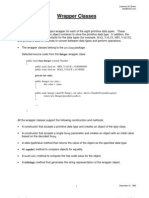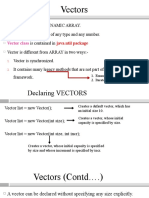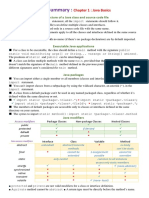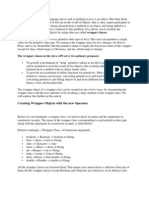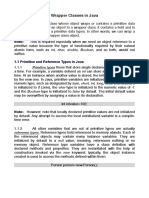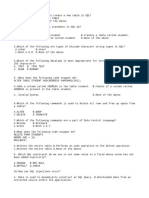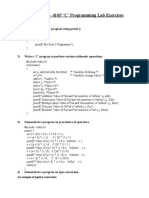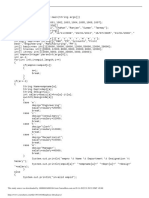0% found this document useful (0 votes)
31 views5 pagesLibrary Classes (Wrapper Classes)
Wrapper classes in Java convert primitive data types into objects and vice versa, facilitating operations like autoboxing and unboxing. The document also explains methods for converting strings to primitive types and vice versa, highlighting the differences between parseDataType() and valueOf(). Additionally, it provides an overview of Java library classes, their purposes, and common usage in programming.
Uploaded by
Anirban ChattopadhyayCopyright
© © All Rights Reserved
We take content rights seriously. If you suspect this is your content, claim it here.
Available Formats
Download as PDF, TXT or read online on Scribd
0% found this document useful (0 votes)
31 views5 pagesLibrary Classes (Wrapper Classes)
Wrapper classes in Java convert primitive data types into objects and vice versa, facilitating operations like autoboxing and unboxing. The document also explains methods for converting strings to primitive types and vice versa, highlighting the differences between parseDataType() and valueOf(). Additionally, it provides an overview of Java library classes, their purposes, and common usage in programming.
Uploaded by
Anirban ChattopadhyayCopyright
© © All Rights Reserved
We take content rights seriously. If you suspect this is your content, claim it here.
Available Formats
Download as PDF, TXT or read online on Scribd
/ 5





